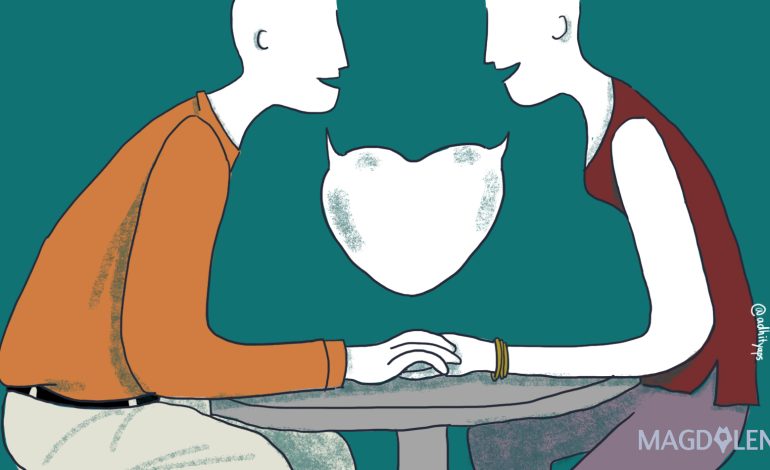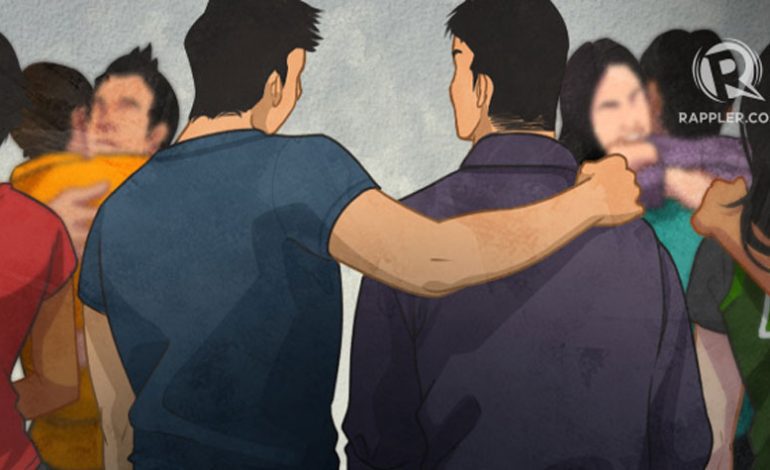Who’s Paying for Dinner? Bringing Equality to Dating

The art of courtship and dating has never ceased to astonish me. There are so many unspoken rules, hidden expectations, and vague social protocols to learn. Young men and women grow up trying their best to perfect their skills in courting and dating.
If you are lucky, your parents or older siblings will introduce you to the basic rules and let you explore the territory yourself. But if you’re not so lucky, you will have to figure it all out through peer groups, movies, books, and popular media.
One of the popular unspoken dating rules I’d like to talk about is who pays for dinner. As a young Indonesian woman, I am expected by the social norm to be taken out to dinner by my date and I shall let him pay the dinner bills. That’s not just for the first date. The rule generally applies to each date. And don’t forget about movie dates, the same rule applies. It should be so simple, no? The guy pays.
I wish it was that simple. But it’s not. I once went for brunch with a guy and paid the bills while he was busy reaching out for his wallet in his pocket. To my surprise, he was really bothered (and probably offended) by it. I was expecting a nice thank you but all I got was him complaining all the way home because I paid for our brunch.
Sadly, he was not alone in this. Many of my male and female friends who are arguably modern still expect men to pay for the expenses made during dates. Men would feel offended if their dates offer to pay, and they are allowed to feel that way. Regardless of who earns more or who has more money at that time, men should pay, simply because they have penises.
Tracing back to the history of courting, the rules were created by men because they were the ones who had a say on social norms and protocols. Women did not have independent source of income, hence the men paid. But make no mistake, it did not translate to free meals for women. Women were expected to “pay back” in the form of obedience and submission to men. Now, is your Caesar salad really worth your power and freedom? Especially since 21st century women have wide access to financial independence.
Some of my female friends would say, “Oh, let it go. It’s just a dinner. It’s not like I’m asking him to provide for me,” or “If he couldn’t pay for dinner, how should I expect him to provide for our family later?” The underlying message implied is still the same of that in the 20th century and way back then: men have to fulfill women’s needs and women owe men their rights to be independent and empowered.
So long as this narrative stays, we will never win the battle on gender pay gap and equal opportunity in the workforce. Corporations and decision makers will still believe that essentially, women should just rely on men to support themselves. It would thus highlight the distorted notion of women being incapable to perform as strongly as men at work. If women cannot pay for their own meals, how can they deliver a complicated task at work without the help of men? Although those two are completely different things, many people still fail to distinguish one thing from another. After all, we are a nation that takes many things for granted.
And with that particular dating rule intact, we give wealth and social status the power they do not deserve. Women are conditioned to value men based on how much he’s got in his bank account. Men’s love are measured by how much he spends on giving gifts and pampering their girlfriends. Consequently, men perceive women as products in the market. You get what you pay for. Is that the kind of relationship we seek to have?
Now imagine if we allow men and women equal independence. None of them has to depend on the other to pay for dinner — and eventually — to make a living. Men don’t have to feel constantly insecure about their finance. Thus, we grant men the freedom to explore more opportunities and take risks with their career.
They don’t have to be burdened with something like, “Mau ngasih makan anak istri pakai apa nanti?” (What would you feed your wife and children?). There will be less men hating their day jobs, men who go to work with a sullen face and go back home feeling discontented because he doesn’t get to do what he loves doing. They can find a job that they actually enjoy, not just the one that pays good money.
Women don’t have to feel guilty about her raise or promotion at work. They don’t have to worry if the restaurant they want to go to is too fancy for their boyfriends. And slowly, we will not put money in the same equation of love and relationship.
Dating is complicated. Every little detail matters. So instead of blindly accepting unspoken rules and hidden expectations, choose open communication. If you feel uncomfortable with your partner paying your meals, you have every right to bring it up with him or her. Pick up the tab, split the bills, go to places that both of you can actually afford, and whoever has more money pays.






















